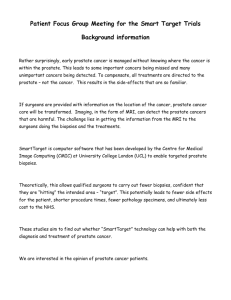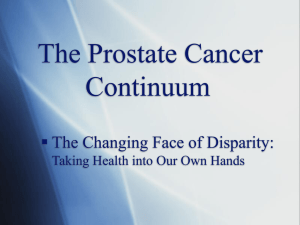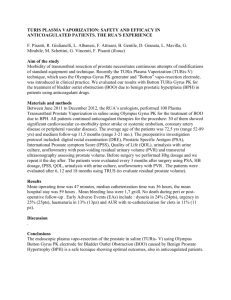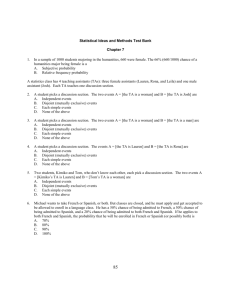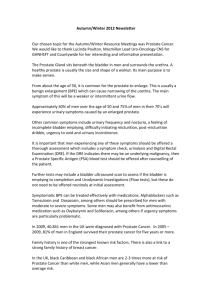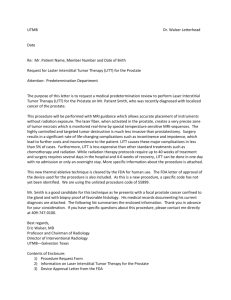Media Release: New study shows Prostate Cancer diagnosis doesn
advertisement
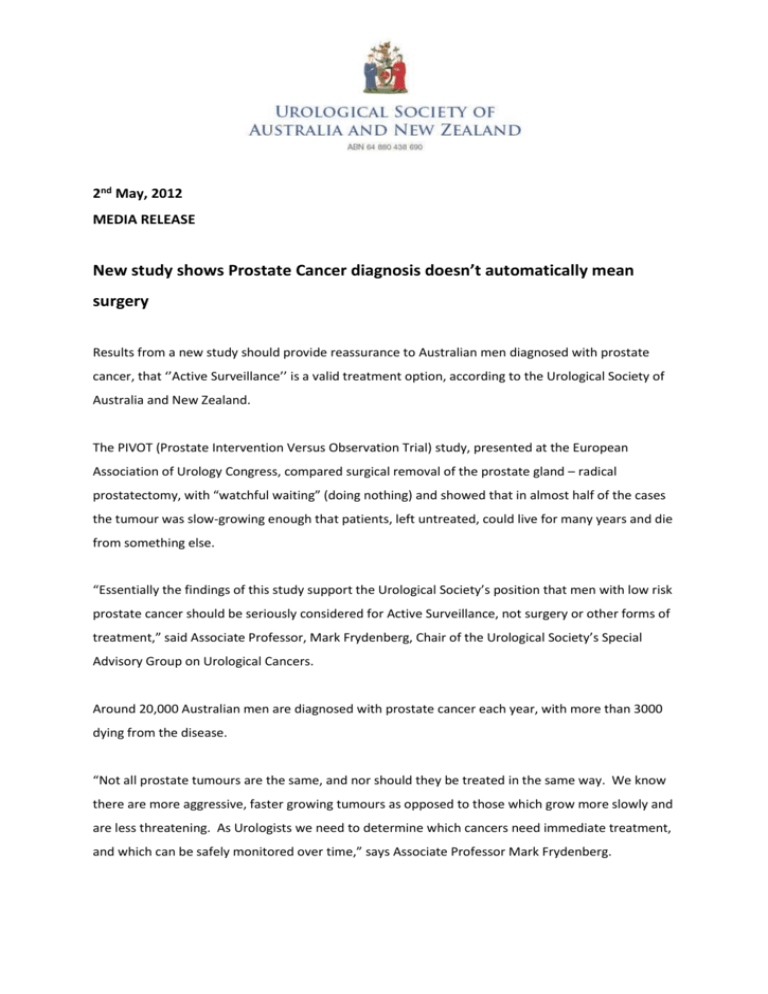
2nd May, 2012 MEDIA RELEASE New study shows Prostate Cancer diagnosis doesn’t automatically mean surgery Results from a new study should provide reassurance to Australian men diagnosed with prostate cancer, that ‘’Active Surveillance’’ is a valid treatment option, according to the Urological Society of Australia and New Zealand. The PIVOT (Prostate Intervention Versus Observation Trial) study, presented at the European Association of Urology Congress, compared surgical removal of the prostate gland – radical prostatectomy, with “watchful waiting” (doing nothing) and showed that in almost half of the cases the tumour was slow-growing enough that patients, left untreated, could live for many years and die from something else. “Essentially the findings of this study support the Urological Society’s position that men with low risk prostate cancer should be seriously considered for Active Surveillance, not surgery or other forms of treatment,” said Associate Professor, Mark Frydenberg, Chair of the Urological Society’s Special Advisory Group on Urological Cancers. Around 20,000 Australian men are diagnosed with prostate cancer each year, with more than 3000 dying from the disease. “Not all prostate tumours are the same, and nor should they be treated in the same way. We know there are more aggressive, faster growing tumours as opposed to those which grow more slowly and are less threatening. As Urologists we need to determine which cancers need immediate treatment, and which can be safely monitored over time,” says Associate Professor Mark Frydenberg. “However, it’s important to note, that while the PIVOT study demonstrated the safety and benefits of Active Surveillance for low risk disease, it also showed that high risk prostate cancer, treated surgically, led to a reduced prostate cancer mortality. “This study provides further evidence that early treatment of men with higher risk prostate cancer at the time of diagnosis will save lives.” Associate Professor Frydenberg recently presented findings from his Active Surveillance program at the Department of Urology Monash Medical Centre at the Urological Society of Australia and New Zealand Annual Scientific Meeting in Darwin. Of the 256 men diagnosed with prostate cancer undergoing Active Surveillance, two-thirds had avoided treatment after four years. Most men in the study that progressed to treatment did so following repeat biopsies that demonstrated the cancer had increased in size and aggression, with only 14% due to PSA progression and a further 11% electing to opt out due to anxiety. “The Urological Society believes it is critical that men with low risk prostate cancer are managed with Active Surveillance and with that in mind it has become a member nation of a major international Active Surveillance database called PRIAS which evaluates outcomes of men with prostate cancer who are conservatively managed without initial treatment.” “While in some other countries there has been concern about over-treatment of prostate cancer – that is, unnecessarily treating slow growing prostate tumours when a man was more likely to die from other causes – Australian urologists will do their best to balance the potential mortality benefits of treatments versus the potential side effects,” says Associate Professor Frydenberg. Media enquiries: Edwina Gatenby, Maxicom Public Relations Phone: (02) 9965 9302 or Mobile: 0402 130 254 Email: edwina@maxicom.net.au

